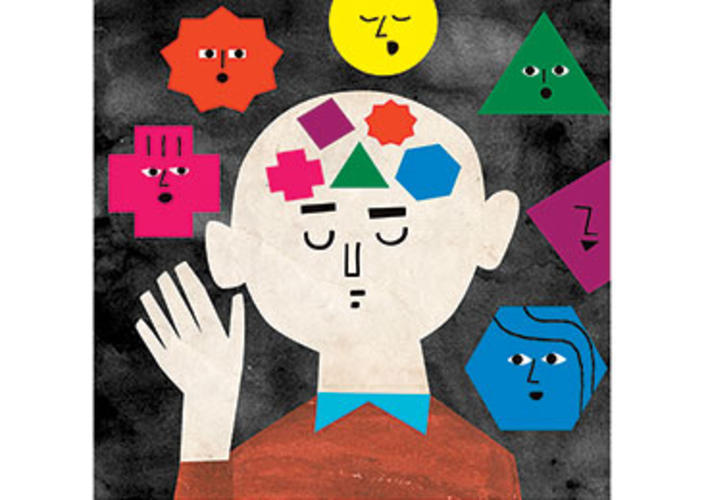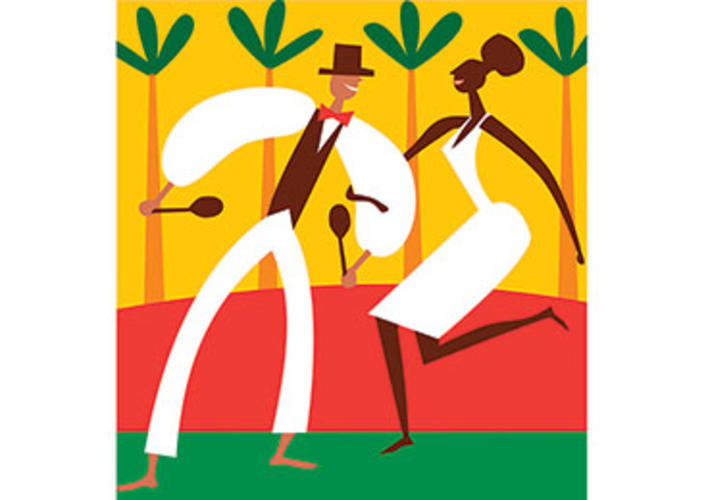Setting the Scene: The History Behind American Performance
Behind the Research: Theater professor Brian Herrera

After spending childhood outside of Albuquerque, N.M., Brian Herrera still marvels that instead of venturing into the majestic mountains that jutted up from his backyard, he “was content reading a book while watching television as often as possible.”
From ages 9 to 15, he lived with his family in Saudi Arabia, which spurred a hunger for American television, movies, and magazines. “The expat community collaborated to build lending libraries,” explains Herrera, noting he was particularly fond of primetime TV recordings and variety specials like the Miss America Pageant and Tony Awards.
Today, the drama historian, performance artist, and Princeton professor says, “Performance reveals cultural information when it’s not fully locked down yet. ... I often say I work with archives that are hidden in plain sight.”
Herrera’s Work: A Sampling
GETTING PERSONAL “Experiences are quite powerful archives, but we don’t know how to understand them in significance beyond the personal,” Herrera says. He is changing that through autobiographical solo performances such as 2010’s I Was the Voice of Democracy, about his teenage claim to fame after winning a national speechwriting contest, and 2013’s Touch Tones, about his stint as a phone-sex operator in the early 1990s during the AIDS epidemic. By blending historical research with personal memories, Herrera explores the interplay of individual experience and history. “Part of what I hope to do with my work is look at how everybody’s lived experiences are an aperture to history, a way to understand the mystery of the past.”
HISTORY VS. MEMORY With his Mexican lineage, Herrera knew that the concept of “Latin culture” has long existed in the United States. But he noticed that popular culture tends to periodically rediscover Latinos as “the next new thing.” He explores this in his 2015 book, Latin Numbers: Playing Latino in Twentieth-Century U.S. Popular Performance, which examines how Latin-inspired musical numbers, casting of Latino actors, and other theatrical influences shape our perception of the group’s history and culture in America.
SPOTLIGHT ON CASTING Roughly 100 years ago, actors didn’t audition for parts. Headshots weren’t a thing. Casting directors didn’t exist. Today, all are indelible elements of the entertainment industry. Why, when, and how did that happen? Those are the questions Herrera is tackling in his forthcoming book, Casting — A History. “It was really when the railroad conjoined the U.S. that, suddenly, industrial capitalism discovered the value of popular entertainment as a commodity. A few years later, there’s this little place called Hollywood that happens,” Herrera explains. From there, the industry blossomed into the dominant force it is today. “[We are] suddenly watching auditions on TV most nights.”














No responses yet